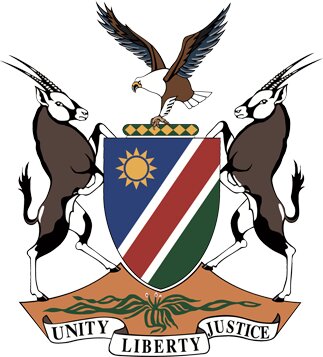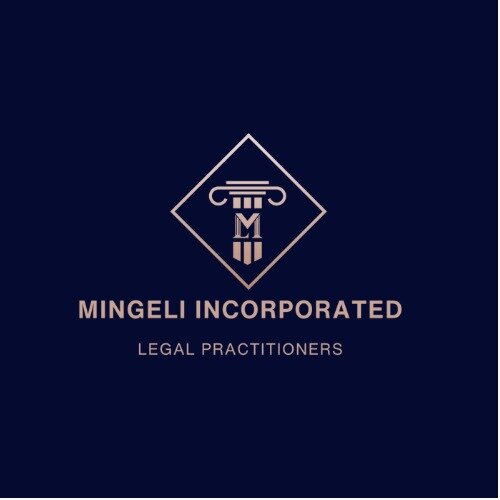Best Child Support Lawyers in Namibia
Share your needs with us, get contacted by law firms.
Free. Takes 2 min.
Free Guide to Hiring a Family Lawyer
Or refine your search by selecting a city:
List of the best lawyers in Namibia
About Child Support Law in Namibia
Child support law in Namibia governs the financial responsibilities of parents towards their children, ensuring that children's basic needs, including education, healthcare, and general welfare, are met even in the case of parental separation or divorce. The maintenance of a child is considered a priority, and both parents are legally obligated to contribute financially based on their means and income, regardless of other responsibilities.
Why You May Need a Lawyer
Seeking legal assistance in matters of child support can be essential in various scenarios. You might need a lawyer if you are facing any of the following situations:
- Experiencing difficulty in determining or agreeing upon the amount of support needed.
- Attempting to modify an existing child support order due to changes in financial circumstances.
- Being subjected to non-payment issues, where the other party is not, or has stopped, providing the required support.
- Dealing with cross-border issues if one parent resides outside Namibia.
- Combating false claims or accusations related to child support obligations.
Local Laws Overview
Namibia's child support regulations are primarily governed by the Maintenance Act, 2003. Key aspects of these laws include:
- Parental Responsibility: Both parents are required to contribute according to their earnings and financial capacity.
- Application for Maintenance: Either parent or guardian can apply for a maintenance order at the magistrate's court.
- Determination of Amount: The court calculates the child support amount, considering the needs of the child and the financial situations of both parents.
- Enforcement and Compliance: Courts have the authority to enforce payment through various means, including garnishing wages or seizing property.
- Modifications: Orders can be reviewed and altered according to changes in circumstances, such as loss of income or significant cost increases related to the child.
Frequently Asked Questions
What is the legal age for receiving child support in Namibia?
The obligation typically continues until the child turns 18, but can extend if the child is still pursuing education or unable to support themselves due to disability.
How are child support amounts determined?
The court evaluates the needs of the child, the standard of living, and the financial ability of each parent to contribute towards maintenance.
Can I apply for child support if the other parent lives abroad?
Yes, applications can still be made, but enforcement may be subject to international treaties or reciprocal arrangements Namibia has with the other country.
What if the other parent refuses to pay the ordered child support?
Non-compliance can result in legal consequences such as wage garnishments, imprisonment, or the seizure of assets.
Is child support obligatory if I am unemployed?
Yes, parents who are unemployed are still required to provide support relative to their ability and the resources they possess.
Can I challenge the child support order?
Yes, you have the right to appeal or request a review of the order if you believe an error was made or if circumstances have changed.
How often can child support orders be reviewed or modified?
There's no fixed interval, but modifications can be requested whenever there is a significant change in circumstances affecting the support payment.
Do additional children affect existing child support obligations?
Having additional children can influence the financial calculations, but it does not absolve existing obligations unless formally approved by the court.
What documents are needed to apply for child support?
You'll need to provide identification documents, proof of income, expenses, and any relevant documents that can substantiate the claim for child maintenance.
How long does it typically take to process a child support application?
Processing time can vary, but initial hearings are often scheduled within a few weeks of applying. However, complex cases may take longer to finalize.
Additional Resources
There are several resources and organizations in Namibia that can assist with child support issues:
- Ministry of Gender Equality and Child Welfare: Offers guidance and support concerning child maintenance and family matters.
- Legal Assistance Centre (LAC): Provides legal aid and advocacy, particularly for matters concerning children's rights.
- Maintenance Courts: Local courts process applications and handle enforcement. They can provide procedural guidance.
- Social Workers: Community social workers can offer support and advice, helping navigate the systems in place.
Next Steps
If you require legal assistance in matters of child support in Namibia, consider these steps:
- Consultation: Schedule an appointment with a family law attorney to discuss your case and receive tailored advice.
- Gather Documents: Assemble all necessary paperwork such as proof of income, financial records, and any relevant documentation about the child’s needs.
- File an Application: Initiate the process by filing a formal application at your local magistrate’s court or through a legal representative.
- Seek Mediation: In less adversarial cases, exploring mediation could be beneficial to reach a mutually agreeable decision outside of court.
- Follow Up: Stay engaged in the process by attending all hearings and responding promptly to any court requests.
With the right guidance and a clear understanding of the process, securing or providing child support through the proper legal channels can ensure that the best interests of the child are prioritized.
Lawzana helps you find the best lawyers and law firms in Namibia through a curated and pre-screened list of qualified legal professionals. Our platform offers rankings and detailed profiles of attorneys and law firms, allowing you to compare based on practice areas, including Child Support, experience, and client feedback.
Each profile includes a description of the firm's areas of practice, client reviews, team members and partners, year of establishment, spoken languages, office locations, contact information, social media presence, and any published articles or resources. Most firms on our platform speak English and are experienced in both local and international legal matters.
Get a quote from top-rated law firms in Namibia — quickly, securely, and without unnecessary hassle.
Disclaimer:
The information provided on this page is for general informational purposes only and does not constitute legal advice. While we strive to ensure the accuracy and relevance of the content, legal information may change over time, and interpretations of the law can vary. You should always consult with a qualified legal professional for advice specific to your situation.
We disclaim all liability for actions taken or not taken based on the content of this page. If you believe any information is incorrect or outdated, please contact us, and we will review and update it where appropriate.
Browse child support law firms by city in Namibia
Refine your search by selecting a city.
















